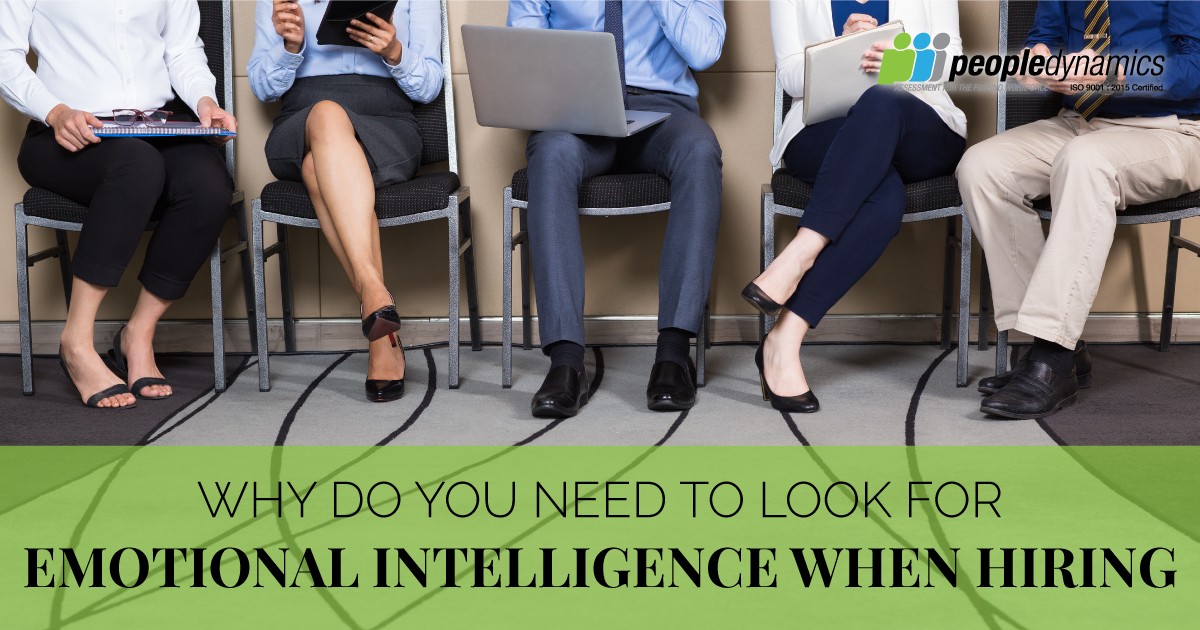In a Forbes article last December 2017, it was mentioned how emotional intelligence abilities need to be increased in 2018. In fact, an infographic by the World Economic Forum lists Emotional Intelligence as one of the top 10 skills needed by an individual by this year 2020 and beyond, further proving how increased EI abilities will be beneficial not only to individuals but also to organizations. That said, it’s high time you also start considering an applicant’s emotional intelligence when hiring.

Importance of looking for Emotional Intelligence when hiring
High levels of EI play an important role in employee performance. With the cost of employee turnover ranging from 30% to 150% of an employee’s salary, it’s important to find employees that are fit not only for the job but also for your organization’s culture.
Here are some of the advantages of looking for emotional intelligence when hiring:
Greater Communication Skills
Emotionally intelligent people are aware of their and other people’s emotions. They know how to manage their own emotions, as well as empower others. These things give them an edge when communicating, whether it’s speaking in public or with colleagues, or answering tough questions thrown to them. People who lack EI become more easily flustered by unexpected questions or don’t recognize other people’s emotions thus increasing the chance of saying something that they can’t retract. And don’t forget about body language! These responses can jeopardize both personal and professional relationships.
Having emotionally intelligent people in your organization will allow for more open communication between each and other and may reduce conflicts due to misunderstandings.
Better Decision-Making Skills
Did you know that all important decisions are subjective? This means that you also considered all the subjective factors when deciding, rather than just relying on the objective ones.
Of course, when looking for someone to fill a job, great decision-making skills are necessary. Even when the position has little decision-making power. An emotionally intelligent person will be able to use the information in feelings when deciding about something. He or she will be able to make expansive, creative, and thought-out decisions. This is “emotional reasoning”.
Positive Influence
Aside from being beneficial to the company, hiring emotionally intelligent people will also bring a positive influence to other people. Through problem-solving, feedback, recognizing and supporting others’ work, people with high levels of EI can positively influence their colleagues, promoting more effective collaboration with each other.
Now is the age of artificial intelligence. A lot of jobs are at risk of being replaced by AI. What can you do to stay afloat? The answer: Emotional Intelligence. While cognitive ability is still important, Emotional Intelligence is that missing x-factor you need to look for in a candidate. The good thing is that you now have a lot of ways to assess a candidate’s emotional intelligence!




